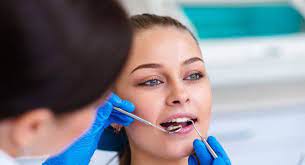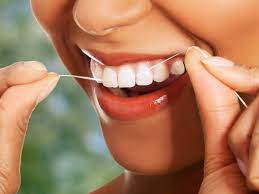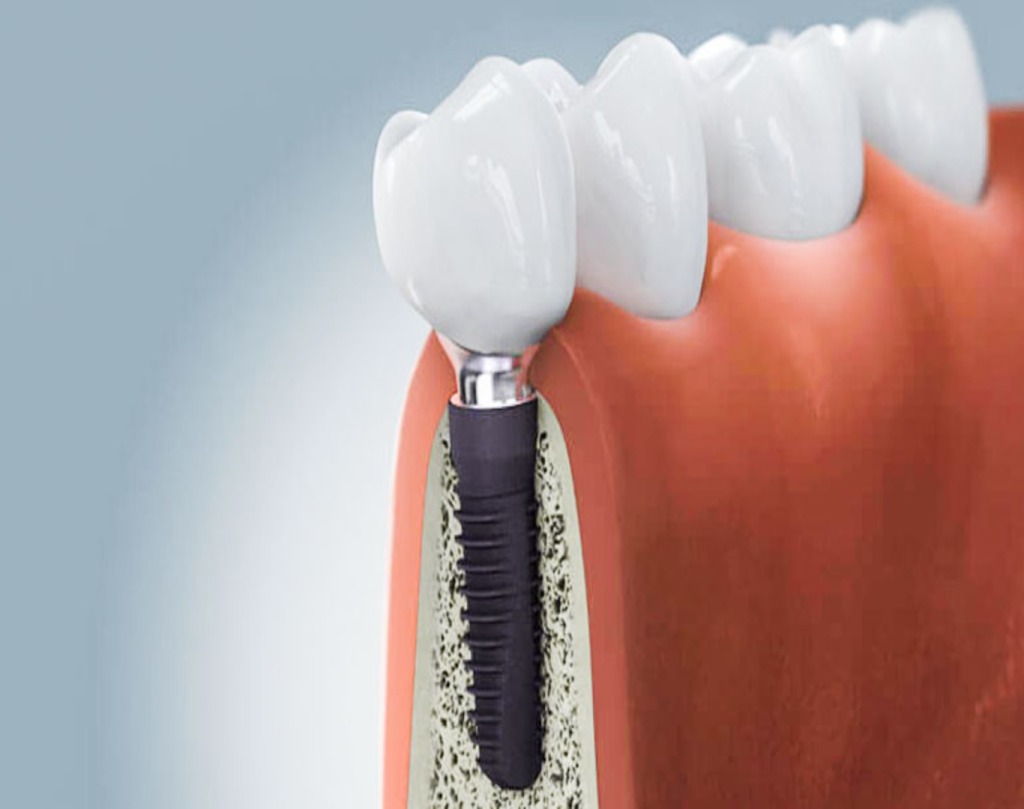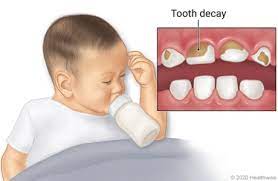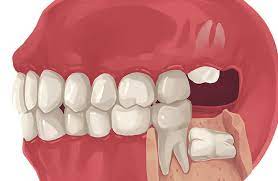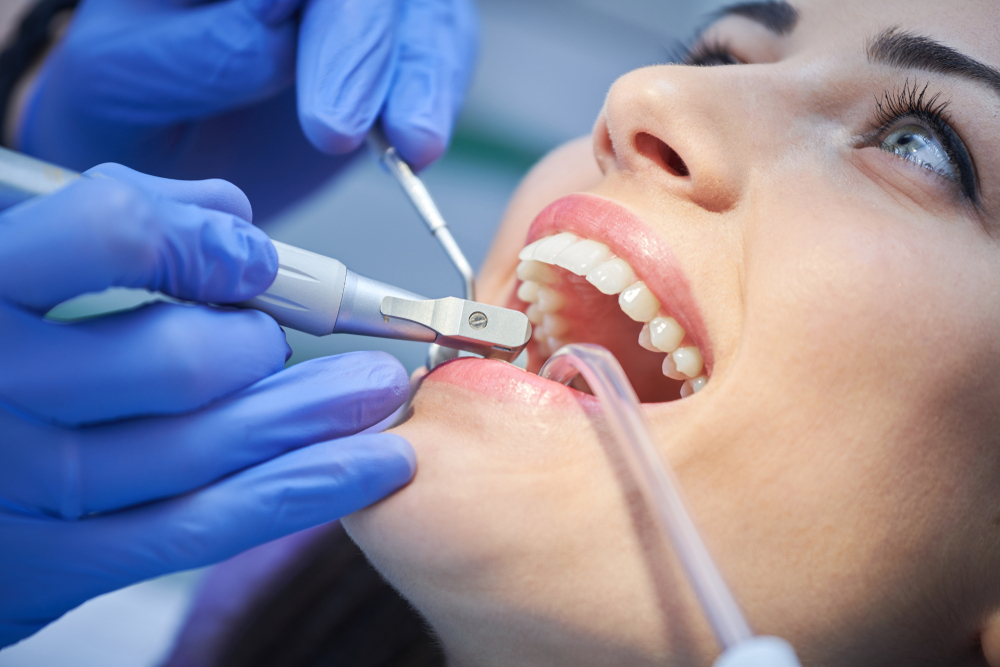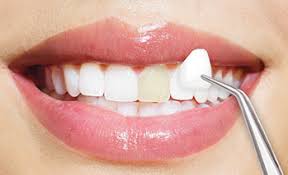Drooling, sticky plaque, acid reflux, grinding, and something called rheum—you won’t believe all the gross things that can go on in the mouth when we’re asleep. Here’s what to watch for.
Sleep allows the body to rest, heal, and rejuvenate. According to dentist, sleep is “the natural, easily reversible periodic state of many living things that is marked by the absence of wakefulness and by the loss of consciousness of one’s surroundings, is accompanied by a typical body posture (such as lying down with the eyes closed), the occurrence of dreaming, and changes in brain activity and physiological functioning, is made up of cycles of non-REM sleep and REM sleep, and is usually considered essential to the restoration and recovery of vital bodily and mental functions.”
For a nice beautiful smile, it is better to see a local cosmetic dentist in pune. If you are living in Pune visit in our dental clinic.
Sleeping can also be a time to wreak havoc on the body. While the whole body works toward being refreshed for the next day, the mouth has its own routine that can be counterproductive and cause some people to wake up with jaw pain, sore teeth, dry mouth, and bad breath. Here are some of the unpleasant things that can occur in the mouth during sleep.
Sleep bruxism
Nocturnal grinding (movement of the jaw back and forth and causing rubbing of the teeth) and clenching (strong clamping of the teeth and jaw) are uncontrollable and defined as involuntary sleep-related movements. These are repetitive sleep movement disorders through rhythmic masticatory muscle activity. Bruxism occurs in episodes throughout the night during sleep arousal when a person transforms from a deep stage of sleep to a light stage of sleep. Many factors can lead to bruxism, such as stress, a bad bite, medications, tobacco, alcohol, recreational drugs, and caffeine.
Symptoms of bruxism include isolated, generalized, or random achiness of teeth, jaw, cheek muscles, and head, including headaches. There is also neck, shoulder, jaw, and temporomandibular joint (TMJ) pain, as well as dryness of the lips, mouth, and throat. People notice these symptoms when they awaken. The main treatment is recommending a night guard. The guard will be worn down instead of the teeth, and this can help ease the pain in the head and neck area.
Acid reflux
Acid reflux is when stomach acid escapes into the throat and mouth. Dental erosion is a chemical process where acid permanently dissolves the surfaces of the teeth. The longer the acid sits on the teeth, the higher the risk of damage. This damage causes sensitivity, increased decay, thin enamel that leads to a higher risk of chipping, and teeth becoming dark in appearance due to the inner tooth being exposed. Depending on severity and length of time, this can lead to fillings, crowns, or root canals. Saliva helps neutralize acid on the teeth, but at night when saliva is reduced, acid reflux becomes more destructive.
Acid reflux can be worse at night with the stomach secrets acid at rates two to three times higher than during the day, which causes more gastric contractions. This acid reflux can also be worse on a full stomach. Waking up with a sore throat can be a sign of acid reflux.
Saliva contains bicarbonate, which is important in neutralizing stomach and esophageal acid to bring it to a basic pH level. Those who sleep on their backs tend to have it worse because saliva can pool in the back of the throat and cause esophageal damage. With side sleepers, it can pool on one side of the mouth and cause unilateral tooth erosion. Sleeping on the right side allows the stomach to be higher than the esophagus, which creates stomach acid in the throat area. Refluxes seem to be more liquid and can lead to regurgitation, coughing, and choking. Left-side sleeping is more favorable because the stomach is lower than the esophagus. It seems to be more gaseous, and there’s less stomach acid moving into the throat area.
Sleep talking
Sleep talking, or somniloquy, is talking while asleep. It ranges from mild to severe and may even include violent acts. Sleep talking can be caused from medications, emotional stress, fever, a mental health disorder, or substance abuse.
Drooling
Excess saliva is called hypersalivation or sialorrhea. It is the excess production of saliva or the inability of saliva to be cleared from the mouth. It unintentionally escapes and ends up on the pillow or sheets. Sleeping on one’s side or stomach can lead to saliva pooling in the mouth. Mouth breathing leads to saliva running out of the mouth.
Drooling can be caused by infections. With allergies, the body may produce more saliva to flush out toxins, and this leads to drooling. Sinus or respiratory infections can cause blockage and unwanted drainage. A sore throat or challenges with swallowing can often cause the accumulation of saliva, and its need to egress results in drool. Oral devices such as an orthodontic retainer, nightguard, snore guard, or dentures can cause drooling due to the inability to close the mouth and the ability for saliva to slip out.
Conditions that cause hypersalivation are dental issues, medication side effects, and gastroesophageal reflux and some medications. Those medications include the antipsychotic drug Clozapine, and cholinergic agonists that treat Alzheimer’s disease, glaucoma, and myasthenia gravis.
A sensory dysfunction, which can lead to the inability to recognize saliva, is present with reduced nerve sensitivity and is often seen in those with intellectual disabilities. Anatomical or motor dysfunction can cause swallowing issues, orthodontic problems, an enlarged tongue, jaw issues, stroke, Parkinson’s, amyotrophic lateral schlerosis (ALS), and cerebral palsy.
Rheum
Rheum is a thin mucus that’s naturally discharged during sleep from the eyes, nose, and mouth. It’s made from mucus, blood, and skin cells, or dust. It occurs in the corners of the mouth and becomes crusty.
Mouth breathing
Mouth breathing is self-explanatory—it’s constant or excessive breathing through an open mouth, inhaling or exhaling through the mouth rather than the nose. Mouth breathing dries out the mouth due to air flowing through it constantly. It’s common in those with narrow nasal passages, upper respiratory conditions, allergies, sleep apnea, or dental appliances. A problem with mouth breathing is the tissue of the upper front teeth. It may spontaneously bleed if touched, have moderate inflammation, be bright red in appearance, or become instantly painful. In children, mouth breathing may cause crooked teeth, facial deformities, or poor growth. In adults it may cause periodontal disease, bad breath, and cavities.
Morning breath
Morning breath is the unpleasant taste and smell in the mouth upon wakening. When food, debris, and bacteria are left in the mouth from a lack of home care, it multiplies in a dry environment. Whatever is left remains on the teeth, tongue, or gums, and with fewer salivary enzymes to break it down, the mouth releases volatile sulfur compounds—bad breath. Morning breath becomes worse with snoring or mouth breathing. These habits lead to an open mouth and increases dry mouth, which causes bacteria to flourish and lead to the stink.
Morning fuzziness
A fuzzy sliminess often accumulates on the teeth at night. This is plaque—or biofilm in professional-speak—and it is constantly forming. Plaque is a group of living microbes that sticks to surfaces, such as teeth, by secreting a glue-like, sticky substance that invokes bacterial growth. It is why dental professionals highly recommend morning brushing to interrupt this harmful accumulation.
Temporomandibular joint (TMJ)
TMJ is the joint that connects the jaw—the movable part of the mouth—to the skull. It’s the hinged part that allows action in the jaw for eating, yawning, swallowing, and talking. Injury or trauma can cause unilateral or bilateral inflammation of these joints, stiffness, achiness, clicking, popping, and limited ability to open the mouth in the mornings.
TMJ can be disturbed with side or stomach sleeping with pressure on this joint, and by pushing into the skull or laterally to the side. Sleeping with an arm under the head can cause posture misalignment and worsen TMJ symptoms. TMJ can occur in conjuction with bruxism, caused by the constant tightness and movement of the jaw.
Dry mouth
Dry mouth, or xerostomia, means not enough adequate saliva is produced for normal functions. There are many reasons why a dry mouth might occur during the night. With age, the body does not produce as much fluid, and that includes in the mouth. When sleeping, the body naturally avoids producing too much saliva in order to decrease the frequency of swallowing.
So, why is dry mouth such a concern in dentistry? Saliva is the natural and most beneficial asset of the mouth. It not only provides lubrication for chewing, moisture, and cleansing, but also the important minerals of calcium, phosphorus, and fluoride for the integrity of the teeth. Saliva balances the oral pH and buffers against bacteria. When there isn’t a functional amount of saliva, oral issues arise, such as difficulty eating or swallowing, swollen gums and tongue, increased infections, and cavities. Saliva acts as a cleanser and helps remove food, debris, and bacteria. When saliva cannot remove these harmful substances, they stay on the teeth and there is a rapid increase in cavities and gum infection, as well as bad halitosis. Mechanical substitutes in brushing, flossing, or picking must occur to maintain a healthy mouth.
Sleep apnea
Sleep apnea is a common sleep disorder that causes frequent interruption in breathing during sleep cycles. There are obstructive, central, and complex sleep apneas. Obstructive and central include loud snoring, stop-and-go breathing, gasping for air, headaches, and dry mouth upon wakening. Risk factors that dental professionals may notice to help diagnose sleep apnea are a small and recessed chin, large tongue, enlarged tonsils, tightness in the jaw, dull headaches, sore and raw spots inside the cheek from chewing on them, and aggressive bruxism.
Dental treatment includes a custom fit oral appliance. The purpose of an appliance is to stabilize the tongue, jaw, hyoid bone, and soft palate in a forward position to increase airway space and reduce the risk of airway collapse. CPAP (continuous positive airway pressure) is another common tool that doctors prescribe. There are a variety of CPAP masks, from mouth and nose cover, to just nose cover. With CPAP use, the constant airflow causes dry mouth, which can increase decay. Sleep apnea is also connected with TMJ disorders, bruxism, and mouth breathing.
Snoring
While sleeping, the tissues in the roof of the mouth, throat, and tongue relax and block the airway. With air flow through the throat, the soft tissues vibrate and cause snoring. The narrower the airway becomes, the more the air is forced and the louder the noise. Snoring happens during mouth breathing. Mouth breathing causes dry mouth, more bacteria build-up, infections, sores, cavities, and a sore throat upon wakening.
Keep in mind that controlling what happens during sleep is impossible but preparing for sleep is not. Sleeping habits can be intertwined and cause a variety of dental issues, so the importance of excellent home care is essential. Emphasizing brushing every morning to remove the fuzzy plaque is a great way to start the day for good breath and clean teeth. If the plaque stays on the teeth and then food is consumed, this interaction causes acidity in the mouth and increases decay. It’s just as important to brush, floss, or use a water flosser at night to remove debris since whatever is left over from the day could wreak dental havoc. Using fluoride products before bed will help maintain the integrity of the teeth and using a dry mouth product to soothe the tissue will maintain comfort.
source:dentistryiq
